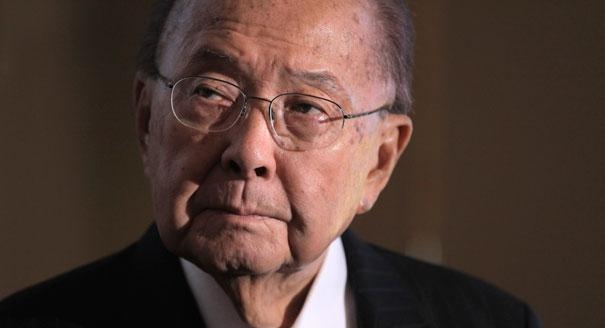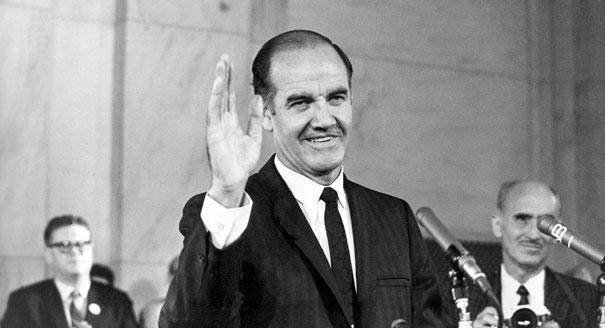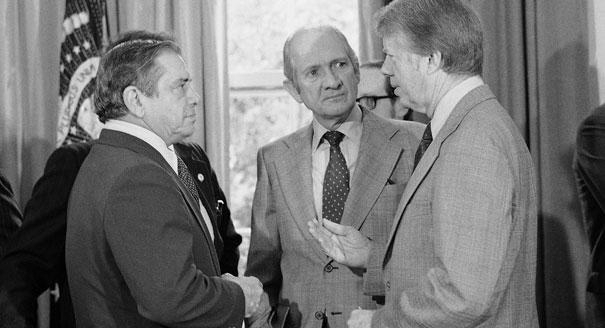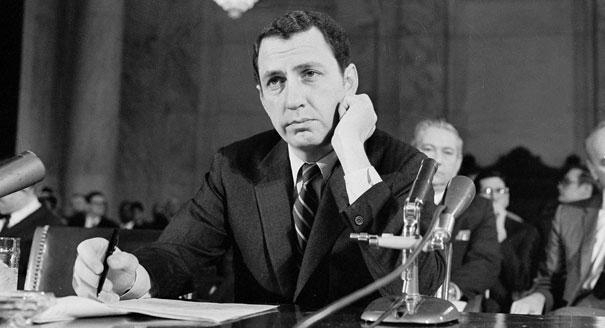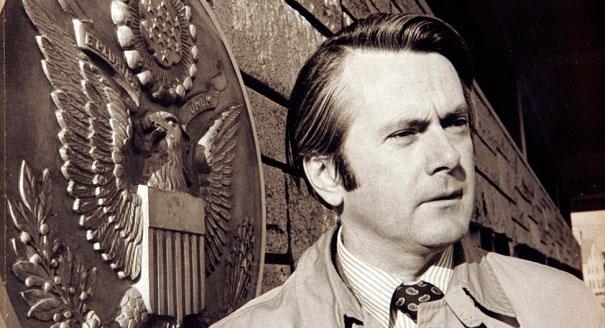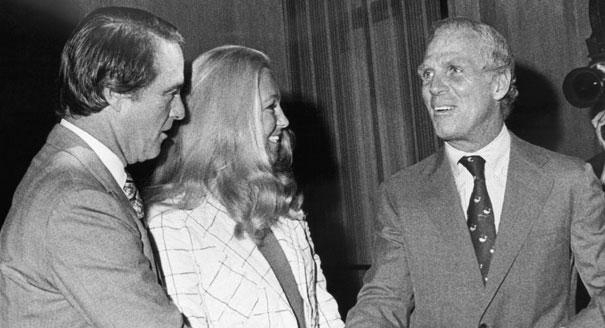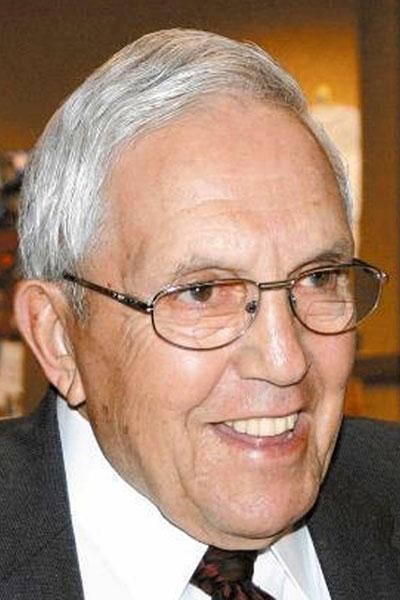337
10
An entire generation of greats is dwindling. Who knows what the future will bring!? I say our politicians take retrospect and learn from the lives of these brave men.
Hawaii Sen. Daniel Inouye, 88, December 17:
Inouye had represented Hawaii in Congress since the islands became a state in 1959. He was chairing the Appropriations Committee at the time of his death. The Democrat lost his right arm while fighting in World War II.
Inouye had represented Hawaii in Congress since the islands became a state in 1959. He was chairing the Appropriations Committee at the time of his death. The Democrat lost his right arm while fighting in World War II.
Sen. George McGovern, 90, Oct. 21:
McGovern challenged Richard Nixon for the presidency in 1972, but his anti-Vietnam War platform failed to attract voters, and he lost 49 states. After leaving Congress, the dovish Democrat became a leading advocate in the fight against world hunger.
McGovern challenged Richard Nixon for the presidency in 1972, but his anti-Vietnam War platform failed to attract voters, and he lost 49 states. After leaving Congress, the dovish Democrat became a leading advocate in the fight against world hunger.
Texas Rep. Jack Brooks, 89, Dec. 5:
Brooks (center), a Democratic protege of legendary House Speaker Sam Rayburn, served in Congress for 42 years, writing legislation that created independent inspectors general throughout the federal government. Brooks was riding in the motorcade in Dallas in November 1963 when President John F. Kennedy was assassinated.
Brooks (center), a Democratic protege of legendary House Speaker Sam Rayburn, served in Congress for 42 years, writing legislation that created independent inspectors general throughout the federal government. Brooks was riding in the motorcade in Dallas in November 1963 when President John F. Kennedy was assassinated.
Pennsylvania Sen. Arlen Specter, 82, Oct. 14:
Specter, who switched from a Democrat to a Republican and back again over the course of a 50-year political career, got his start as a national figure by working for the Warren Commission and authoring the “single-bullet” theory of Kennedy’s assassination.
Specter, who switched from a Democrat to a Republican and back again over the course of a 50-year political career, got his start as a national figure by working for the Warren Commission and authoring the “single-bullet” theory of Kennedy’s assassination.
New Hampshire Sen. Warren Rudman, 82, Nov. 20:
Rudman, who served from 1980 to 1992, was fierce deficit hawk, but many Republicans never forgave him for helping to put fellow Granite Stater David Souter on the Supreme Court in 1990.
Rudman, who served from 1980 to 1992, was fierce deficit hawk, but many Republicans never forgave him for helping to put fellow Granite Stater David Souter on the Supreme Court in 1990.
New Hampshire Sen. John Durkin, 76, Oct. 16:
He won his single term in the Senate after one of the closest elections in the history of the upper chamber. A recount showed him leading his Republican opponent by a mere 10 votes when the Senate decided to vacate the seat and order New Hampshire to hold a special election. Durkin won a rematch.
He won his single term in the Senate after one of the closest elections in the history of the upper chamber. A recount showed him leading his Republican opponent by a mere 10 votes when the Senate decided to vacate the seat and order New Hampshire to hold a special election. Durkin won a rematch.
Boston Mayor Kevin White, 82, Jan. 28:
White (right), a Democrat, served four terms as mayor of Boston, guiding the city through the forced busing crisis of the 1970s. In 1972, he was considered as a potential running mate for presidential candidate Sen. George McGovern, but his nomination was nixed by Sen. Ted Kennedy, a political rival.
White (right), a Democrat, served four terms as mayor of Boston, guiding the city through the forced busing crisis of the 1970s. In 1972, he was considered as a potential running mate for presidential candidate Sen. George McGovern, but his nomination was nixed by Sen. Ted Kennedy, a political rival.
South Dakota Sen. James Abdnor, 89, May 16:
Abdnor was the second Arab-American ever elected to the Senate when he swept McGovern out of the upper chamber in 1980. He had previously served four terms in the House of Representatives.
Abdnor was the second Arab-American ever elected to the Senate when he swept McGovern out of the upper chamber in 1980. He had previously served four terms in the House of Representatives.
New Jersey Rep. Donald Payne, 77, March 6:
The first African-American to represent New Jersey in Congress, serving from 1988 until his death. His son, Donald Payne, Jr., was elected to succeed him in Congress.
The first African-American to represent New Jersey in Congress, serving from 1988 until his death. His son, Donald Payne, Jr., was elected to succeed him in Congress.
Rep. Bill Janklow, 72, Jan. 12:
Janklow, a Republican who also served four terms as South Dakota's governor in the 1980s and 1990s, resigned from his seat in 2003 after being convicted of manslaughter for his role in a deadly traffic accident.
Janklow, a Republican who also served four terms as South Dakota's governor in the 1980s and 1990s, resigned from his seat in 2003 after being convicted of manslaughter for his role in a deadly traffic accident.
Source:
реклама


